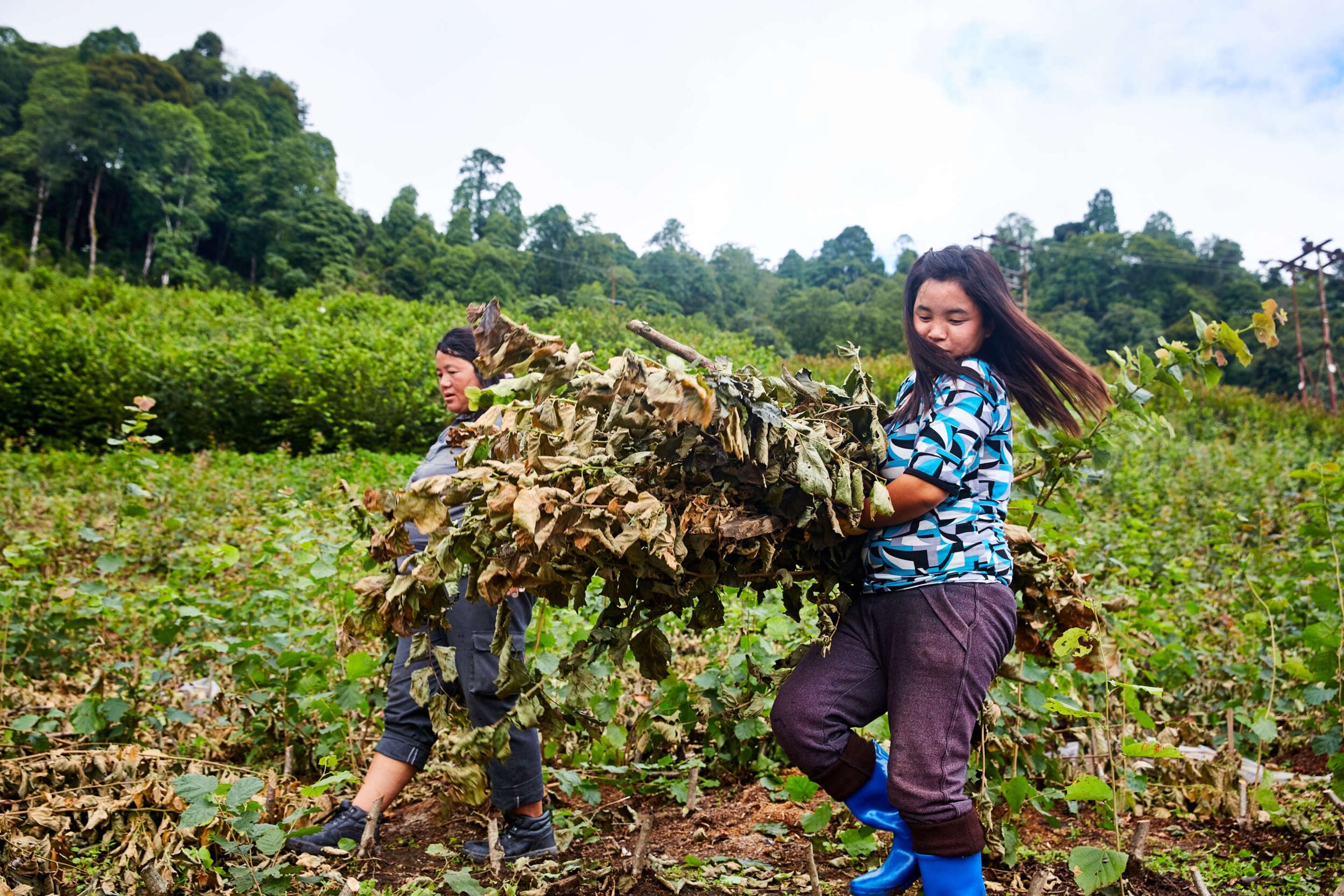
Ecological Integrity
With a wide range of ecosystems—from alpine zones of the Himalayas to subtropical floodplains at the Indian border—Bhutan is one of the world’s major biodiversity hotspots. The Nation has made a strong commitment to protecting its environment. Mountain Hazelnuts reinforces this commitment with an ecological business model that restores tree cover, builds soil, and improves water quality.
Environmental Impact Goals
Mitigate climate change by sequestering atmospheric carbon and improving soil quality.
Increase forest cover by planting millions hazelnut trees on fallow or degraded land. Trees are planted in sustainable contour rows. There is no ploughing, tilling, or large scale soil disturbance, nor are herbicides used for weed control in orchards.
Improve soil and water quality by reducing erosion, while improving water retention in watersheds and soil carbon-carrying capacity.
Promote climate resilience among smallholder farmers through affordable water storage and improved management practices.
THE ISSUES
Deforestation in the steep and rugged Himalayas sets off a chain of ecological damage. Degraded areas erode five to fifty times faster than forested areas. Hillsides that have lost valuable topsoil become less productive, while river health suffers from high sediment loads. Loss of forest cover and soil disrupts ecosystems and adds to global climate change.
A PATH TO SUSTAINABLE SOLUTIONS
Hazelnut farming actively reverses this process. The hazelnut orchards stabilize mountain slopes, reduce erosion, improve watershed retention, and mitigate climate change by improving soil fertility and carbon sequestration.
Minimizing erosion improves water quality, helping to restore rivers and streams.
Pruned branches from orchards will provide a valuable source of firewood, reducing pressures on natural forests. A one-acre orchard should provide about one ton of firewood annually
The development and sales of carbon credits would provide critical cash flow to Mountain Hazelnut’s subsistence community partners, providing cash-flow and enabling growers to best care for their orchards, particularly during the pivotal periods prior to significant harvests and nut revenues. Current estimates are that our orchard will sequesters >500,000 MT of Co2 over the next 35 years.





